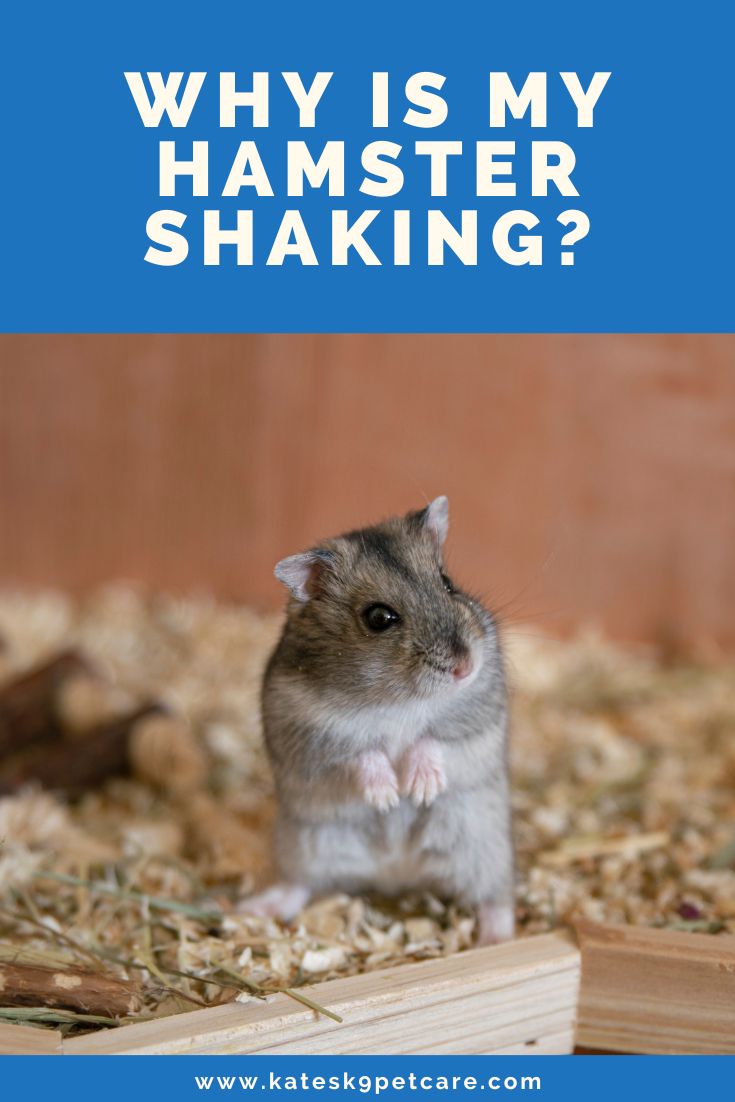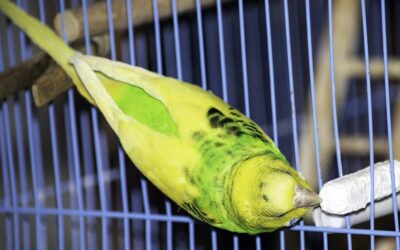If you’re a new hamster keeper and not completely used to hamster behavior yet, or if your old timer has suddenly started acting strangely, it’s easy to worry. One common question is: why is my hamster shaking?! Should you be panicking if your furry friend has begun to tremble?
Let’s go into shaking in hamsters and what may be causing yours to have the shakes.
Why is my hamster shaking? 3 common reasons
1. Stress and fear
There are many things that can cause stress, fear, anxiety and similar sensations in hamsters. As a result, they can begin to shake, tremble or shiver. Some stress factors are temporary and can’t really be avoided, but others are more semi-permanent and require you to intervene. Additionally, sometimes it can be a bit challenging to figure out what the problem actually is: what makes sense to your hamster won’t always make sense to you.
If you’re asking yourself ‘why is my hamster shaking?’, consider whether any of the following apply:
- Did you just bring your hamster home? The stress of a new environment can absolutely cause it to shake until it settles in.
- Was your hamster just startled by a loud noise or by you bumping into the cage? Maybe you turned on the light all of a sudden?
- Check your hamster for injuries or other problems. A hamster that’s in pain may get so stressed that it begins to shake as a result (see also the paragraph on illness below).
- Lack of hides. Hamsters need plenty of dark spots to retreat to, or they’ll become stressed. Alternatively, have you just added a bunch of hides or changed things around? That can also cause a temporary stress reaction.
- Is everyone in your family handling your hamster appropriately? Restraining a hamster, handling it roughly and handling it against its will can all cause stress shakes.
- New cagemates or being introduced to new people. Cagemates being aggressive can also be very stressful, as can taking them away.
- Loneliness due to lack of cagemates and/or lack of attention from you.
- Hunger or thirst. Check the food bowl and water bottle! It’s especially important to ensure the water bottle is not clogged.
- Do you have cats or dogs that may have access to the hamster cage? Your hamster may be in a permanent state of anxiety as a result.
- Hamsters are not used to swimming or getting in contact with water. They can start shaking as a result of the stress and cold.
This doesn’t cover everything that can make a hamster feel stressed until the point of shaking, but it’s a start. Just try to think about any changes that may have taken place recently or any discomforts your hamster may be experiencing.
All in all, it’s important to remember that hamsters are prey animals. They evolved to be skittish creatures and rely on their routines. As a responsible hamster owner, you should keep this in mind and prevent stressing out your hamster unnecessarily. Stress doesn’t just cause shaking, it also makes your hamster more susceptible to disease and can shorten its lifespan!

2. Cold, drafts, weather & the seasons
Hamsters have a good layer of fur and will ideally have a warm nest to retreat to if things get a little chilly indoors during wintertime. Still, if you let temperatures drop too low, you may see your furry friend go into hibernation (officially called torpor). This process, especially after the hamster wakes back up, can be accompanied by vigorous shaking to get the body back up to its normal temperature. It’s not overly dangerous or worrisome, but it can be a bit scary to watch if you haven’t seen it before. You wouldn’t be the first hamster owner to start preparing a funeral and then being shocked to see their pet come back to life!
A hamster generally goes into torpor when temperatures drop below around 50 °F. They gradually stop moving aside from shallow breathing, but worry not! Once you bring your hamster into a warmer room, it’ll hopefully slowly wake back up and very likely start shaking. As long as it stops when its body has warmed back up, you’re in the clear.
Did you know? Research papers have described a mutation in Syrian hamsters called black tremor. Hamsters with this genetic mutation will have a black coat and defective myelination in the central nervous system, which causes tremors. You won’t find affected hamsters in your local pet store, but they have been used for research into disorders that cause tremors in humans.

Offer your hamster some extra bedding during winter to keep it warm and help prevent torpor.
3. Illness
The last common reason for hamsters to shake is due to illness. Shaking is a symptom of some illnesses, but even if it’s not, your hamster may still display this behavior due to the resulting pain and stress. Another reason to pay close attention if your hammie is acting out of the ordinary!
The most common illnesses associated with a trembling hamster are:
- Respiratory infection: if you’re using dusty, unsuitable bedding or have given your hamster overly dusty sand for its sandbath, this can cause respiratory infection. If your hamster is shaking, sneezing, wheezing or similar, this may warrant a vet visit.
- Nervous system: this is unfortunately not uncommon in irresponsibly bred pet store hamsters, but can also be caused by infections, vitamin deficiencies or even a stroke. If you see your hamster gazing up and falling over (referred to as stargazing), running in circles and just straight up acting weird along with the shaking symptoms, this may be the case here. You’ll have to visit your vet as soon as possible to see if anything can be done.
These are only the most common illnesses that may cause your furry friend to shake. If your hamster is shivering and you can’t find a logical reason related to (changes in) its environment and handling, you should always give your vet a call so they can make sure nothing is wrong.
Sources







